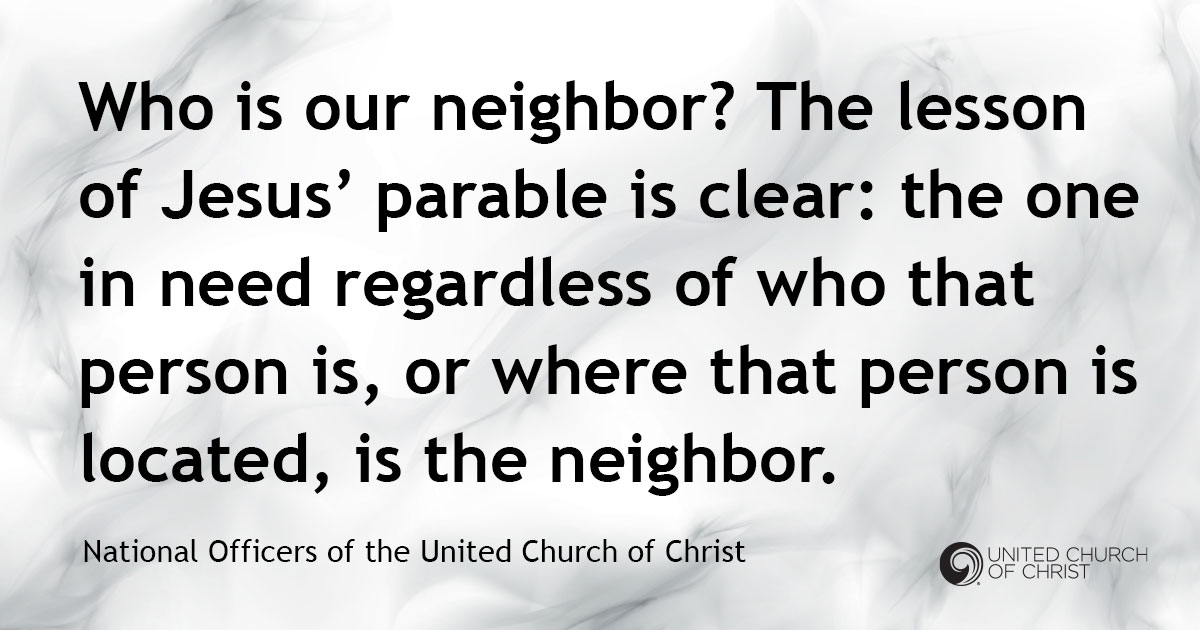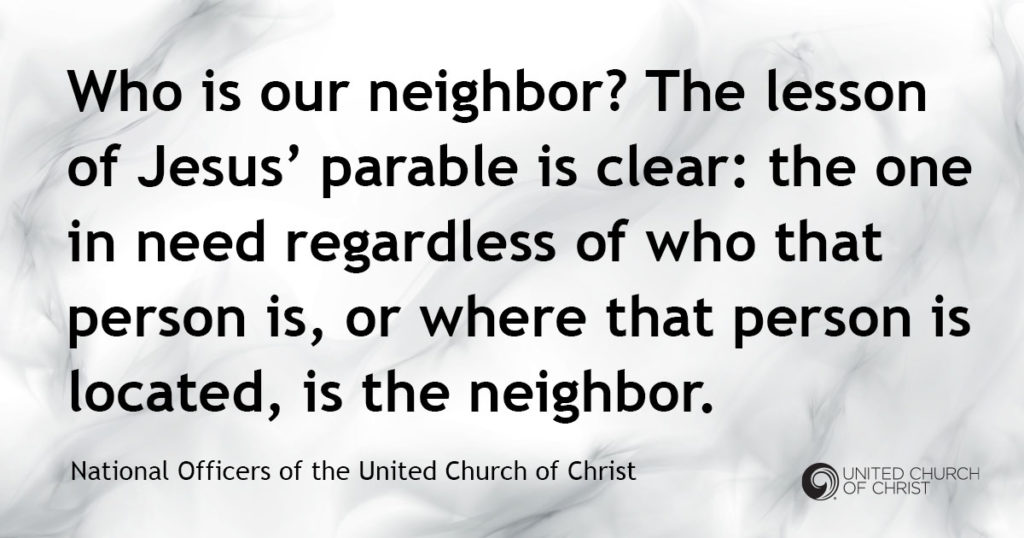UCC Officers: Racism is a pandemic that has plagued U.S. far too long
“Inequality is magnified in times of national hardship. Perhaps nowhere is this clearer than in communities of color, which have long endured inequalities across American economic, social, and civic systems.” –Source: AmericanProgress.org
 In recent weeks our country has witnessed the murders of African descendant people at the hands of individuals and police officers who have negated Black lives and treated them as worthless and expendable. These events have once again brought to national and global attention the disparate numbers of Black people dying senselessly because of racism.
In recent weeks our country has witnessed the murders of African descendant people at the hands of individuals and police officers who have negated Black lives and treated them as worthless and expendable. These events have once again brought to national and global attention the disparate numbers of Black people dying senselessly because of racism.
Adding to these concerns for Black lives is the growing number of people affected with and dying from the coronavirus, which has disproportionately impacted people of color. According to the APM Research Lab, of the 43 states and the District of Columbia collecting racial data related to COVID19, Black people are at least twice as likely to die from COVID-19 as other documented races. In 30 states and D.C., Black people are dying at percentages above their population share. The reasons for this are multi-faceted, yet all are attributable to systemic inequalities that have persisted in the U.S. for centuries. The weight of these inequalities and disparities has risen to the surface yet again, resulting in the explosive eruption of frustration, sadness, anger, anxiety and extreme exhaustion we are witnessing in protests all over the country.
As people of faith, we are tired of a justice system that seems to sanction police brutality with no consequences to those actions. We are tired of a health system that does not see health care as a basic right and a priority for all people. We are tired of the mistreatment, devaluing and dehumanization of Black lives.
Race or ethnicity is known for around half of all COVID-19 cases and 90% of related deaths. Although gaps remain, the pattern is clear: Non-white populations are being hit disproportionately harder by COVID-19 in the U. S.
Many factors that determine health and well-being are beyond individual control. These factors include the environments in which people are born, live, learn, work, worship and play – known as the social determinants of health – which affect and shape health as well as quality of life. Freedom from racism and other forms of discrimination are factors that impact our abilities to live healthy — mind, body and souls.
The biblical narratives tell us that throughout Jesus’ ministry Jesus was concerned about the health and wellbeing of people. Through his exemplary life we, his followers today, are called to the ever-widening ministry of healing. The familiar story of the Good Samaritan (Luke 10:25-37) makes a direct case for access to health care and the elimination of racial and ethnic disparities. We are reminded to love our neighbor, to stop and touch the pain, to assist in caring for and nurturing the neighbor back to health, wellness and wholeness.
Who is our neighbor? The lesson of Jesus’ parable is clear: the one in need regardless of who that person is, or where that person is located, is the neighbor. All persons who are ill, regardless of race, ethnic origin, age, gender, religion, sexual orientation, disability, income, legal status, health status, or geographical location, deserve to be healed.
Whereas health disparities and inequalities in the Black community reflect the inequity and injustices that continue to permeate our society; and whereas the nation’s second highest health goal is the elimination of health disparities; and whereas the disproportionate impact of health disparities on people of African descent is evident globally; and whereas over half of the 30 million persons who are uninsured are racial and ethnic persons of color; We, the officers of the United Church of Christ, believe that racism is a pandemic, a virus that is alive and well, existing in our society and in our church.
We believe that racism is a pandemic that is fueling the white supremacist’s violent response to the presence of non-violent protestors in U.S. cities.
We believe that racism and all forms of discrimination are social stressors that have a physiological effect on individuals compounding over time and can lead to long-term negative health outcomes.
We condemn the words and actions that lead to health inequities which are related to “historical and contemporary injustices” and we call upon national leaders for health care reforms that will provide adequate health care for all marginalized communities.
We condemn the militarization of our communities and call on national leaders to end the senseless killing of racial and ethnic persons through structured police reforms.
We call upon our churches and Conferences to embrace new and increased levels of attention, commitment and action by intentionally resolving to work on the elimination of racial and ethnic disparities.
We call the United Church of Christ into dialogue and action as we examine and dismantle the political, theological, and social systems that produce injustices such as systemic racism and discrimination.
We are rooted in the conviction that all forms of injustice can be overcome. Racial and ethnic disparities are the consequence of public policies, and as such can be changed. Tackling these inequities requires widening our understanding of critical and sensitive issues to include ways in which lifestyle factors influence individual and community health.
Faithfully,
The National Officers of the United Church of Christ
Related News
A Prophetic Call for Justice and Peace in Palestine
The executive leaders of the United Church of Christ have issued the following statement...
Read More‘Love is Greater Than Fear’: Regional Youth Events get to the heart of gospel message
United Church of Christ teens attending this summer’s Regional Youth Events (RYE) are...
Read MoreUCC desk calendars available to order now
Prepare for your day, month and year with the United Church of Christ desk calendar —...
Read More


